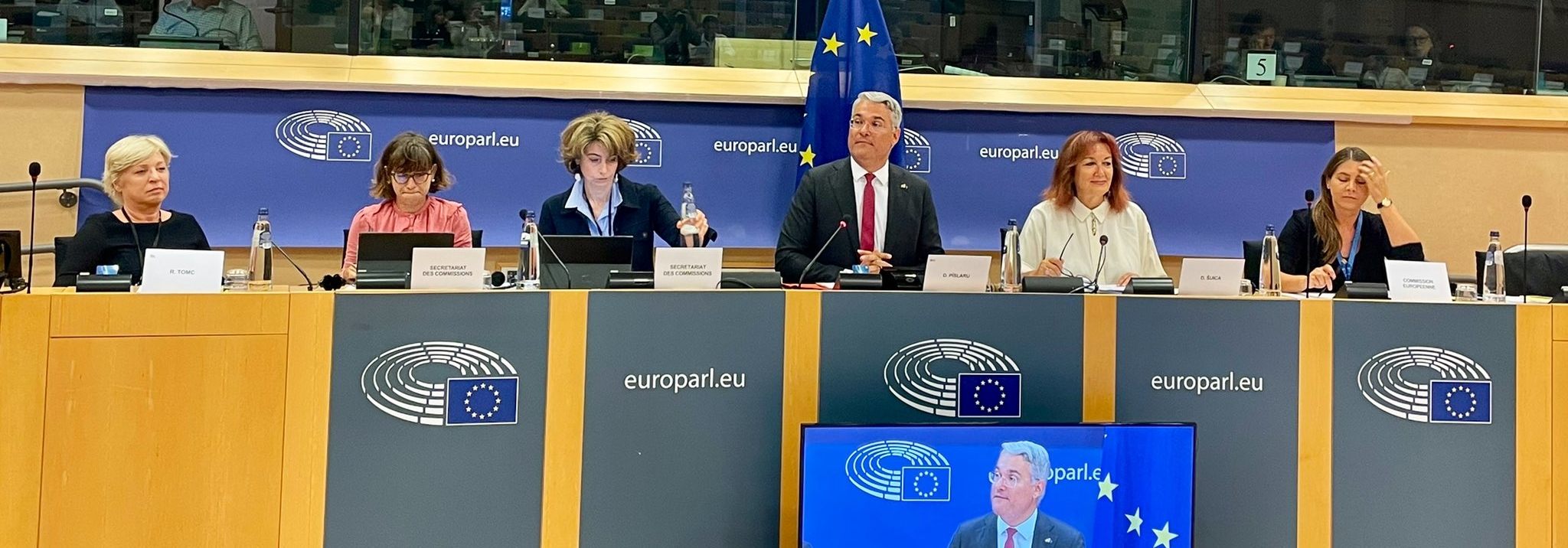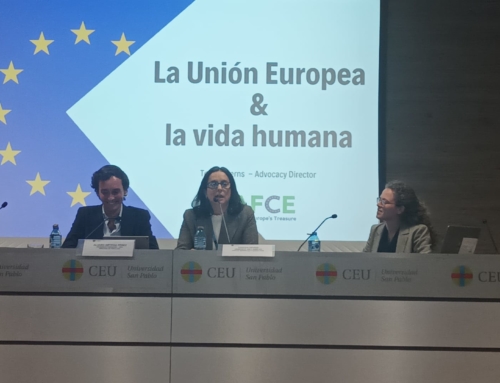9th of September 2022
Following the publication Thursday evening of the European Care Strategy by the European Commission, its Vice-President, Dubravka Šuica, presented yesterday at the European Parliament the key elements of this Strategy.
Vice President Šuica declared to the Members of the Employment and Social Affairs Committee of the European Parliament that “our moto is “we care for care””. “The time has come to put care the center of the political agenda”. To support this declaration, she presented the key proposals of the Commission when it comes to ensure quality, affordable and accessible care services in Europe, and to improve the situation for both care receivers and the people caring for them. She also included the need to increase the attractively of care jobs.
“This initiative is anchored in the demographic change the EU is going through: today 52 millions Europeans provide unformal care to their family“, she stated. According to the European Commission Report on the Impact of Demographic Change (2021), “Europe’s population is getting older. As our median age increases, so does the number and share of people in the older age groups. By 2070, 30% of people in Europe are estimated to be aged 65 and above, up from about 20% today. At the same time, the working-age population (20-64 years) is projected to decrease”. As raised by Vice-President Šuica, demographic challenges not only encompass the ageing of Europe, but also the increased distance of place of residence between family members, making it more difficult for families to care for their older relatives, in addition to the difficulty to access available and affordable child care services.
The architecture of the European Care Strategy is based on one communication (the European Care Strategy) and two proposals for Council Recommandations on early childhood education and care, and on the access to long-term care.
Revision of the Barcelona targets on early childhood education and care
The Commission is proposing that Member States revise the targets on early childhood education and care, also called ‘the Barcelona Targets’ (2002), to maximise women’s labour market participation. The current targets call on Member States to provide childcare to 33% of children under 3 and to 90% of children from age 3 until mandatory school age. The Commission now proposes to achieve by 2030:
- 50% of children below the age of 3 are in early childhood education and care;
- 96% of children between the age of 3 and the starting age for compulsory primary education are in early childhood education and care
Create an ambitious framework for long-term care to meet growing needs.
The Commission also recommends that Member States set up national action plans to make care more available, accessible and of better quality, for instance by:
- Increasing the offer and mixof professional long-term care services (homecare, community-based care and residential care), close territorial gaps in the access to long-term care, roll-out accessible digital solutions in the provision of care services, and ensure that long-term care services and facilities are accessible to people with disabilities;
- Supporting informal carers, who are often women and relatives of care receivers, through training, counselling, psychological and financial support;
The support for the unformal care produced by families remains strickingly weak in the Commission’s proposal, which presents a clear preference for formal care services and the full labour market participation of carers, especially mothers. Our Federation recalls the urgency to recognise the value of unpaid care work provided by families, and to concretely support families to freely decide on their work-life balance. FAFCE especially stresses the priceless work produced by mothers, who are not passively expelled from the labour market, but are active workers when producing unpaid care work, and primary contributors to the prosperity of our communities.
The next step is now for the recommandations to be endorsed by EU Member-States. The European Commission will also prepare EU fundings, organise mutual learning events, and monitor the implementation of the foreseen Recommendations, including through the European Semester.







